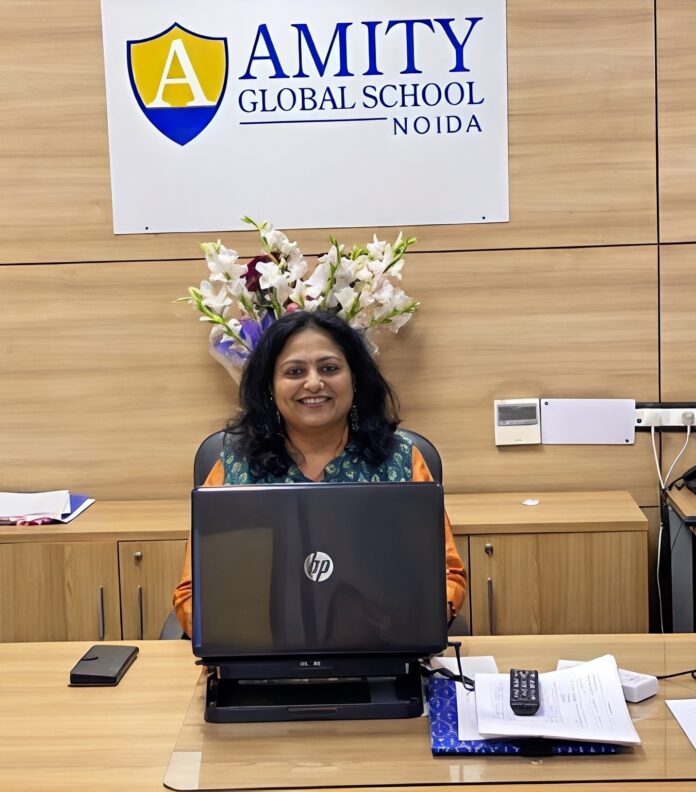Miss. Anita Paul, Principal, Amity Global School- Noida
As education evolves, so do the expectations parents have for their child’s learning experience. Parents are looking beyond traditional board schools on the corner and towards international schools that are interested in teaching children, not just the marks. Of all the choices, the International Baccalaureate (IB) is a very popular option for its inquiry-based curriculum, its emphasis on life skills, and its focus on sending well-rounded critical thinkers out into the world.
But first, let’s see what the IB curriculum really has to offer, how it compares to the other boards, and what some of the practical realities parents have to deal with are.
Understanding the IB Curriculum and Philosophy
The IB curriculum encourages students to ask questions, to reflect, and to apply what they’ve learned to their world. The IB curriculum is centered on the student rather than just academics and also emphasizes moral, physical, and emotional growth. The curriculum prepares students to be well-rounded, inquiring, reflective, and confident learners, highlights Miss. Anita Paul, Principal, Amity Global School- Noida
IB has various programs depending on the different age group:
- PYP (Primary Years Programme) for 3–12-year-olds
- MYP (Middle Years Programme) for 11–16-year-olds
- DP (Diploma Programme) for learners between 16 and 19 years
For older learners, the Diploma Programme (DP) covers the basic elements of Extended Essay (EE), Theory of Knowledge (TOK), and Creativity, Activity, Service (CAS). These elements enable students to acquire research, thinking, and life skills beyond textbooks.
Prior to admission, determine what program the school is offering and if it is the same as your child’s grade. Also, double-check if the school is properly authorized by the International Baccalaureate Organization (IBO). The best IB school should have qualified teachers, incorporation of learning activities, and a well-balanced approach between academics and co-curricular activities.
Understanding the Academic Environment
You should visit the school and observe the learning environment. Make sure that the classrooms, laboratories, and libraries are geared towards active learning. Ask about the training of the teachers and their experience in dealing with the IB course. Ensure that students are provided with appropriate counseling because the IB course is challenging. Schools that offer both emotional and academic counseling will help students perform better and manage stress effectively.
Practical Insights for Parents
While IB schools are great institutions to go to, there are some things to keep in mind:
- Cost: IB schools are a bit expensive because of their infrastructure, teacher training, and curriculum materials. Some schools offer scholarships or financial aid, so it’s worth asking about those options.
- Time Commitment: The IB program requires consistent effort, with a focus on reading, research, and project work. Parents should be prepared to support their child in managing time effectively and providing emotional encouragement when needed.
- Location: Think about the travel distance from home to school. Long travel times are tiring and may affect your child’s daily energy and performance.
Getting the Facts Right About IB Schools
Many parents hesitate to consider the IB program due to common myths and misunderstandings. Some believe it is for gifted students or those planning to study abroad. Others are concerned about expense or complexity.
In reality, IB is available for everyone. It welcomes students from all backgrounds and supports different learning styles. Though the curriculum differs from traditional boards, it can be managed with proper support. Additionally, the IB diploma is approved by both Indian and international universities.
Also Read: Top Work-From-Home Internships for College Students in 2025
Why More Parents Are Choosing IB
The world now demands more than book smarts. Skills like communication, collaboration, and problem-solving are just as important. The IB curriculum gives equal emphasis to building these ‘hands-on’ skills as well as strong academic foundations. Parents opt for IB because their children become confident, reflective thinkers who have the capacity to respond to a changing world.
In India, the rise in IB schools reflects this shift. Families want an education that goes beyond memorization, one that nurtures independence, curiosity, and global thinking.
Enrolling your child in an IB school is a thoughtful choice that should be based on careful research and reflection. If you’re looking for an education system that encourages deep learning, personal growth, and international-mindedness, the IB curriculum could be the right fit.
Take the time to understand the curriculum, visit schools, ask questions, and consider your child’s interests and learning style. With the proper school and some extra assistance, the IB experience can be a rich experience that not only prepares your child for exams but also for life.
Get Some Courses:Digital Marketing,Software Engineering

































































